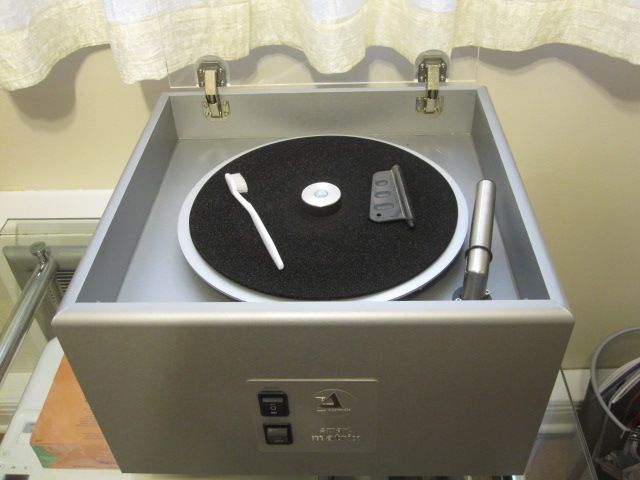soulmanure
Active Member
I got my Record Doctor V about a week ago, and it's been a godsend, I have to say. I was doing the dent-puller/Dawn/sink wash/let-it-dry dance, but this is levels above in results. I've attacked a good forty or fifty albums now, and I've come up with a few questions along the way, so I thought I'd throw them out to the community to see what y'all think.
- First of all, I'm curious about what you do with brand new vinyl. Do you clean it or just consider it clean enough? I'm tending towards cleaning and then putting it in a Diskeeper.
- Second, how slowly do you go on a manual turn when vacuuming, and how many revolutions do you make? I go moderately slow four times.
- Third, when do you replace the felt on the vacuum (I have no ideas on this).
- Fourth, what else do you do in your cleaning ritual?



